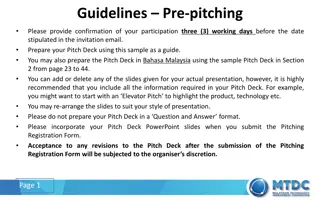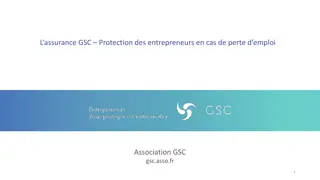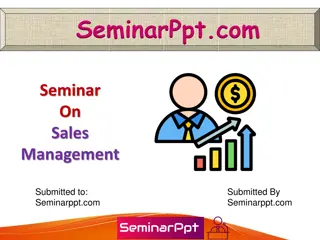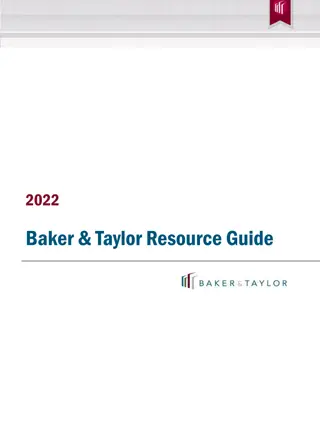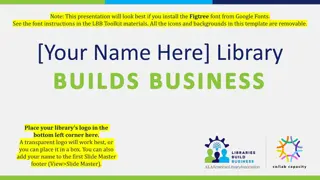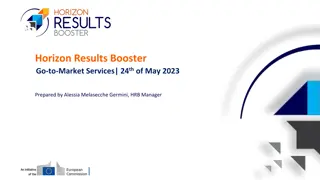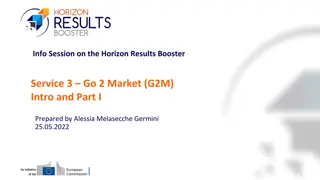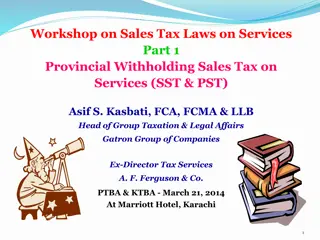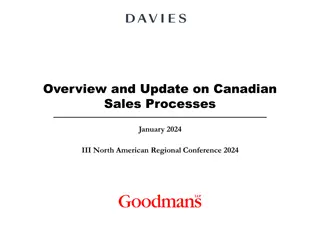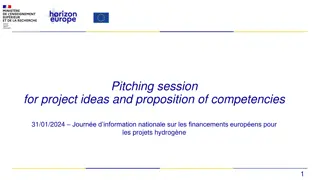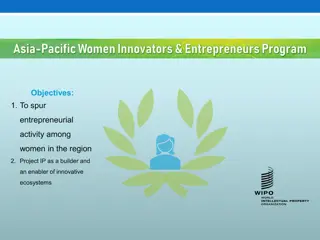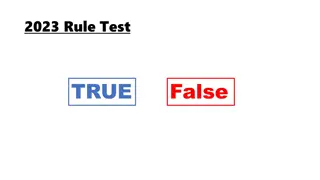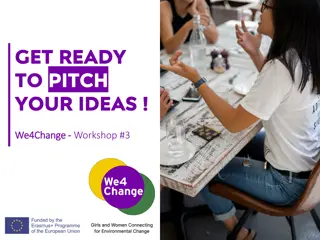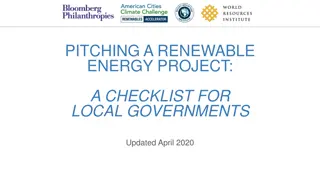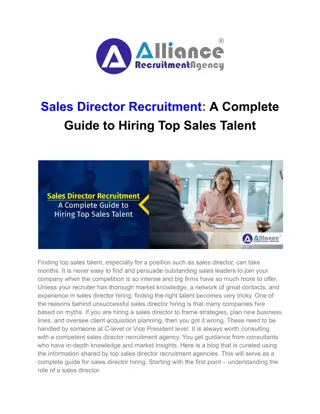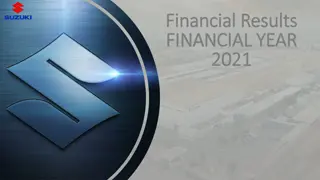Mastering Sales Pitching: Essential Guide for Entrepreneurs
Learn the art of sales pitching with this comprehensive guide crafted by Mariam Gorjian, Assistant Director at the University of Kentucky's Von Allmen Center for Entrepreneurship. Discover the key components of a solid sales pitch, including defining the problem, presenting a compelling solution, and engaging your audience effectively. Whether you're a student, faculty member, or part of the Lexington community, this resource is tailored to help you deliver impactful pitches for your startup or project.
Download Presentation

Please find below an Image/Link to download the presentation.
The content on the website is provided AS IS for your information and personal use only. It may not be sold, licensed, or shared on other websites without obtaining consent from the author.If you encounter any issues during the download, it is possible that the publisher has removed the file from their server.
You are allowed to download the files provided on this website for personal or commercial use, subject to the condition that they are used lawfully. All files are the property of their respective owners.
The content on the website is provided AS IS for your information and personal use only. It may not be sold, licensed, or shared on other websites without obtaining consent from the author.
E N D
Presentation Transcript
Presentation: Pitch Deck Template & Outline Author: Mariam Gorjian University of Kentucky Assistant Director | The Von Allmen Center for Entrepreneurship Gatton College of Business and Economics
Todays presentation outline 1. Brief overview of The Von Allmen Center 2. Sales pitching what is it? a) What is a sales pitch? b) Who is the audience? c) Do I need a business plan first? 3. Building blocks of a sales pitch 4. Wrap up and Questions
VACEs Mission and Entrepreneurial Focus: Federally funded by the Department of Commerce, Economic Development Administration (EDA) Primary mission to support Kentucky s entrepreneurs through educational programming, workshops, and public speaking events. Our Customer University of Kentucky students, staff, faculty, and the broader Lexington community
Sales Pitching What is it? a) What is a sales pitch? A non-technical/simple powerpoint presentation of your startup or project Usually 5-10 minutes of speaking time Who is the audience? A sales pitch should be crafted so that ANYONE could read through it and understand your goals Do I need a business plan first? No! Business plans are overkill Use this presentation template instead before drafting such a time consuming document Business plans are often used for bank loans most investors today will not ask for a business plan b) c)
The Building Blocks of a Solid Sales Pitch
The Problem a) Tell the story What motivated you to start this? Is there a personal connection? b) What is the problem? Explain in a single slide what problem you are solving and why this is important Having a connection to the problem makes the pitch more compelling to the audience
The Solution a) What is your solution? Explain in a single slide your solution to the problem b) Why now? Address why this is important to solve now How is your startup going to address the problem, and do it better than everyone else out there?
Addressing the Market a) What is your market size? Explain the size of the market you are targeting in one-two slides Is it 1 million people in a specific industry? Or its it billions? No you cannot cover 100% of any market! Look at Demographics Of the market you are going after, what demographics make the most sense in the early stage? College campuses, etc? No you cannot get the entire nation on board in the first 6 months! b)
Current Traction & Customer Interviews a) Who is your Customer? Based on the market size, you should be able to identify your target customer For example, Is this business targeted towards customers between the ages of 50-60 years old? b) Customer traction and surveys Create a free online survey to interview your customer s needs, wants, and don t wants You can have the best business in the world that no one needs!
The Competition and/or Partners a) Who are your competitors? List your competitors and explain why you are better than what s out there Yes, there is competition! Never say that you don t have competitors! b) Partners Often times your competition can become potential partners Make sure you are addressing partnerships and collaborative groups along the way Competition only means you are doing something right!
The Plan to Make Money a) What is your revenue model? Will your products and services have pricing? Will there be a free-mium model with ads? b) Are your prices comparable to your competitors? Make sure you have researched what everyone else is doing. If your prices are higher, be prepared to justify why someone would want to pay more If you are a non-profit, you still need to have a sustainable income to keep the lights on!
Operations Plan a) How will your business operate? If the business is online, you need to understand your process flow of customers, to payment, to shipping Amazon has done this very well! Not all startups will have an operations plan at the early stages, but it is good to start outlining For example, a brewery is a very tedious operation and needs to have good floor planning, employee management, and equipment layouts.
Risk Management a) Are there risks associated at the current stage? Do you have regulatory hurdles? If so, what are they? Have you filed for provisional patents, or are in the process of filing? Do you have inventory that needs a specific kind of storage, or has a limited shelf life? If your industry sector has a high turnover, do you have the tools needs to fill the gaps? Note some of none of these may apply to your startup
Startup Timeline a) What is the timeline of your startup? List all major accomplishments with date and year Have a goal for the future Next 3 months Next 6 months Next 12 months The idea is to keep the momentum going. The goal post will change, but keep track of where you are and where you want to go!
Startup Management Team & Advisors a) List your team Provide headshots with title (CEO, COO, etc) List all advisors and mentors that are helping you. It takes a village and no one can do it alone. Let your journey shine through!
Final Slide a) The last slide should include your company name, tagline, and contact information b) If you don t have a name, logo, or tagline yet, the minimum is contact info with email address or phone number. c) Always end on a positive by saying thank you for your time today, and I d be happy to answer any questions.
@ukyentrepreneur Thank you! Got Questions? Email: mariamgorjian@uky.edu




